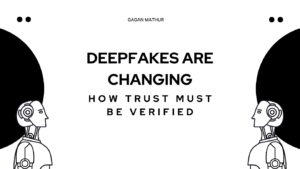Overview
The organization faced fragmented DevOps practices, inconsistent tooling, and a lack of standard governance. These inefficiencies led to operational silos, slow software delivery cycles, and compliance risks. Without a unified approach, IT teams struggled to meet business demands, impacting agility, security, and innovation. The absence of automation and structured processes hindered efficiency, scalability, and responsiveness to market changes.
Led a comprehensive DevOps transformation program, to position IT as a strategic business enabler by driving a comprehensive DevOps transformation. This initiative established standardized processes, automation frameworks, and a culture of agility—enhancing collaboration, operational efficiency, and innovation across global IT operations.
Strategic Approach
🔹Standardized DevOps Foundations: Developed operational handrails covering recommended tooling, governance frameworks, risk management, and contract standards, ensuring a structured and scalable approach
🔹Technology Enablement & Proof of Concept (PoC): Led Proof of Concept (PoC) initiatives on cloud platforms, leveraging automation tools and demonstrating business impact through a pilot implementation.
🔹Process Modernization & Change Management: Redefined change management workflows, integrating modern toolsets to streamline processes and align with DevOps methodologies.
🔹Capability Building & Culture Shift: Launched enterprise-wide DevOps training programs, including coaching via CKC, the DevOps Storefront, and external consulting partnerships to accelerate best-practice adoption.
Challenges & Solutions
1.) Resistance to new DevOps practices due to unfamiliarity with tools and methodologies.
Solution: Drove leadership advocacy, awareness campaigns, and hands-on training, demonstrating the value of DevOps adoption.
2.) Legacy systems and disparate tools led to inconsistencies in implementation.
Solution: Standardized processes, published structured handrails, and integrated recommended tools to ensure alignment across teams and geographies.
3.) Scaling adoption across diverse teams globally posed logistical challenges.
Solution: Established a phased rollout plan, leveraging regional champions to drive adoption and ensure localized support.
Impact & Business Value
🔹Operational Efficiency & Agility:
Standardized DevOps practices improved development velocity and collaboration, reducing time-to-market for new features.
🔹Enhanced Compliance & Governance:
Implemented governance frameworks and risk management processes to ensure security, auditability, and regulatory compliance.
🔹Recognition & Industry Benchmark:
Positioned IT as a strategic business partner, embedding agility and innovation across operations.
Recognized with the VP CIO Award for excellence in DevOps transformation, setting a benchmark for future digital and operational initiatives.
🔹Long-Term Impact:
Established a scalable, automation-driven DevOps model, fostering continuous innovation, reducing manual overhead, and ensuring sustained business alignment.
Call to Action
Looking to drive enterprise-wide DevOps transformation for improved agility, faster innovation, and enhanced operational efficiency? Let’s connect to explore how these strategies can unlock business value and accelerate your digital evolution.




